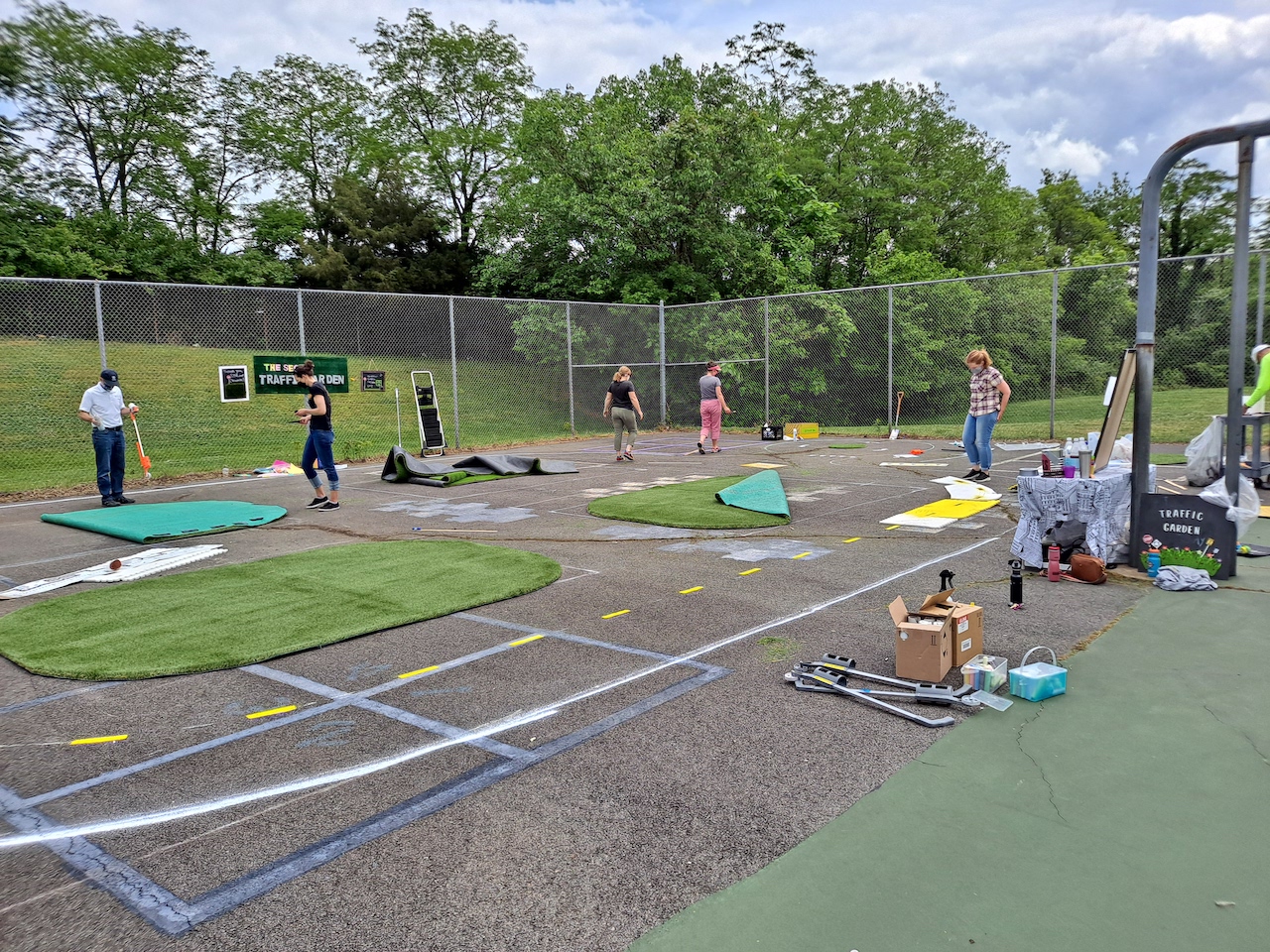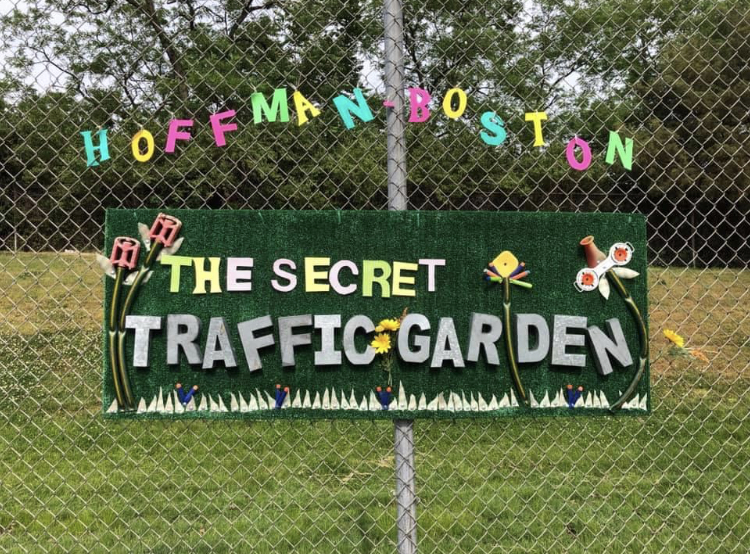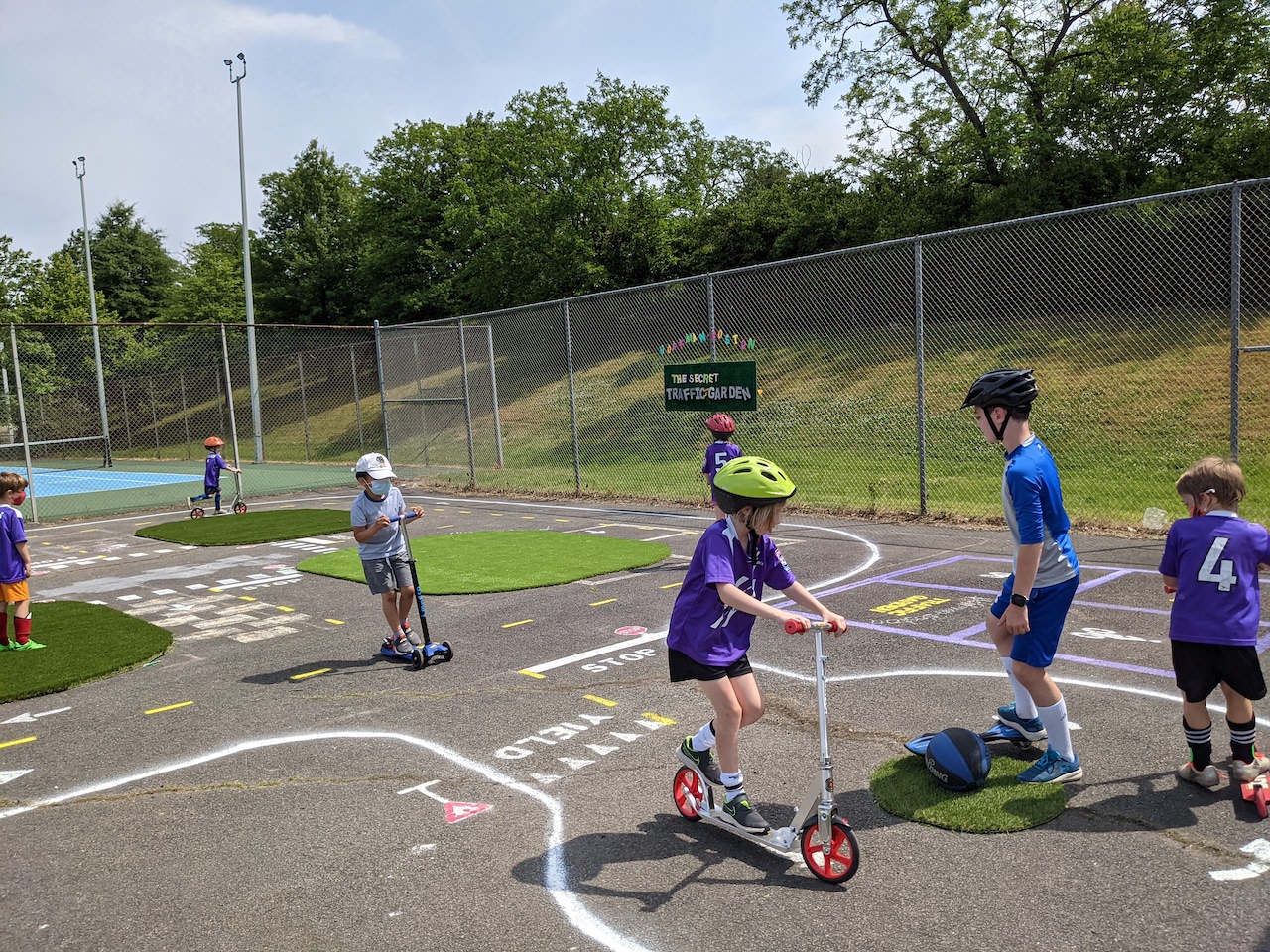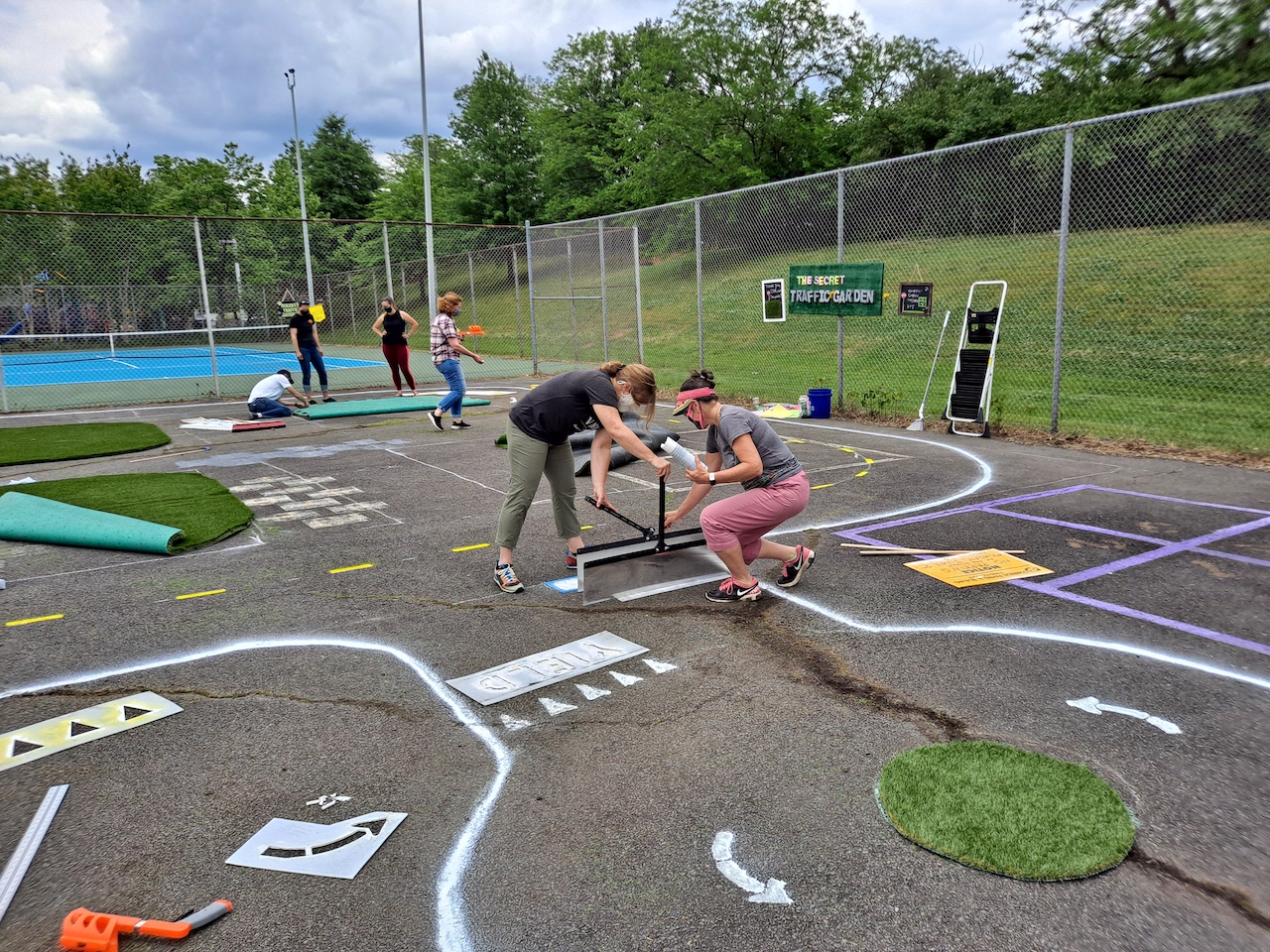Arlington County is receiving $35,000 of assistance to design more “traffic gardens” to help kids learn about traffic safety.
Earlier this week, the National Capital Region Transportation Planning Board (TPB) awarded $250,000 of consulting services to five D.C.-area projects with the intention of improving “safety on the region’s roadways, especially for its underserved communities.”
One of those is a joint project from Arlington County and Prince George’s County to build traffic gardens at schools.
“Traffic gardens are miniature transportation networks with familiar roadway elements, in which children can walk, bike, and scoot to learn the rules of the road and practice their transportation safety skills,” principal planner Christine Baker for Arlington’s Department of Environmental Services writes to ARLnow.
The hope is that this project and the consulting services being granted will help develop universal guidance and templates so that schools can build its own gardens on “any budget” using a number of different materials and equipment.
Arlington has had two recent examples of temporary school-based traffic gardens, one at Key Elementary School in the Bluemont neighborhood and the other at Hoffman-Boston Elementary School in Arlington View. Those schools used common, everyday materials — like spray bottles, measuring sticks, string, and chalk — to construct the roadway.
“We expect that schools will use the guidance to evaluate the traffic garden design possibilities for their own site,” says Baker. “Most schools take advantage of under-used hard surfaces outdoors, like blacktops, courts or other asphalt to create more permanent projects, while those with less capacity can retrofit gymnasiums with tape to create pop-up traffic gardens.”
Baker also notes that young students can take the lessons learned on these mini, safer roads and bring them back to their neighborhood.
“Traffic gardens not only help to educate children on the transportation system now but instill safety habits and transportation values that last a lifetime,” Baker says.
The TPB, which operates under the Metropolitan Washington Council of Governments (MWCOG), will in the coming months be hiring a consultant in the that will be providing working with both counties on the project. It’s unclear at this point when the Arlington schools will have traffic gardens installed.
The initiative fits in with the county’s Vision Zero initiative, a plan to eliminate transportation-related deaths and serious injuries on county streets and trails within the next decade. This includes the recent implementation of “slow zones” near schools.
“Our Vision Zero transportation safety program is not just about engineering safety improvements on our roadways. There is a big emphasis on community engagement and education around safety,” says Baker. “Traffic gardens are an amazing way to educate our community members from a young age to embrace safe transportation practices.”
TPB approved four other projects for funding in nearby jurisdictions, all related to road safety and pedestrian improvements, including in the City of Alexandria, Fairfax County, Prince William County, and the City of Falls Church.





